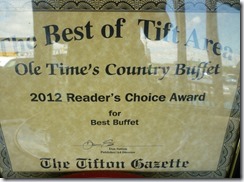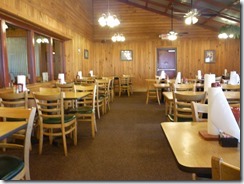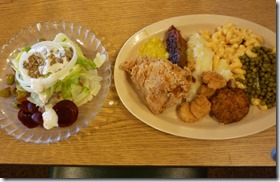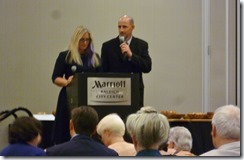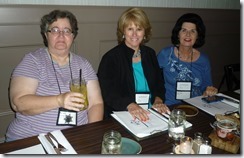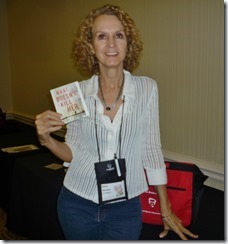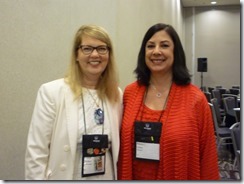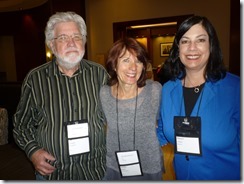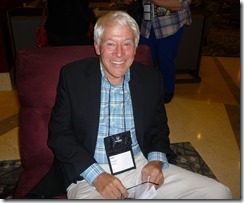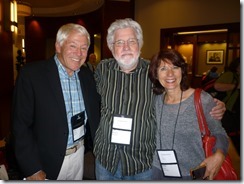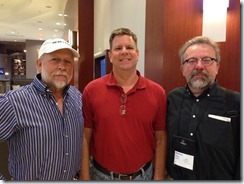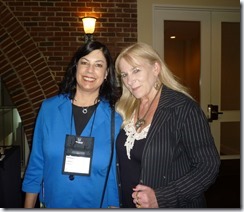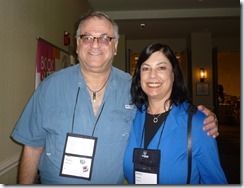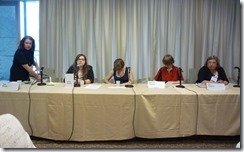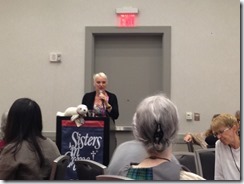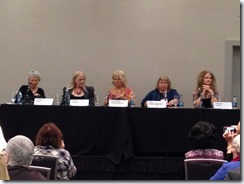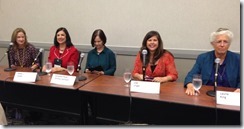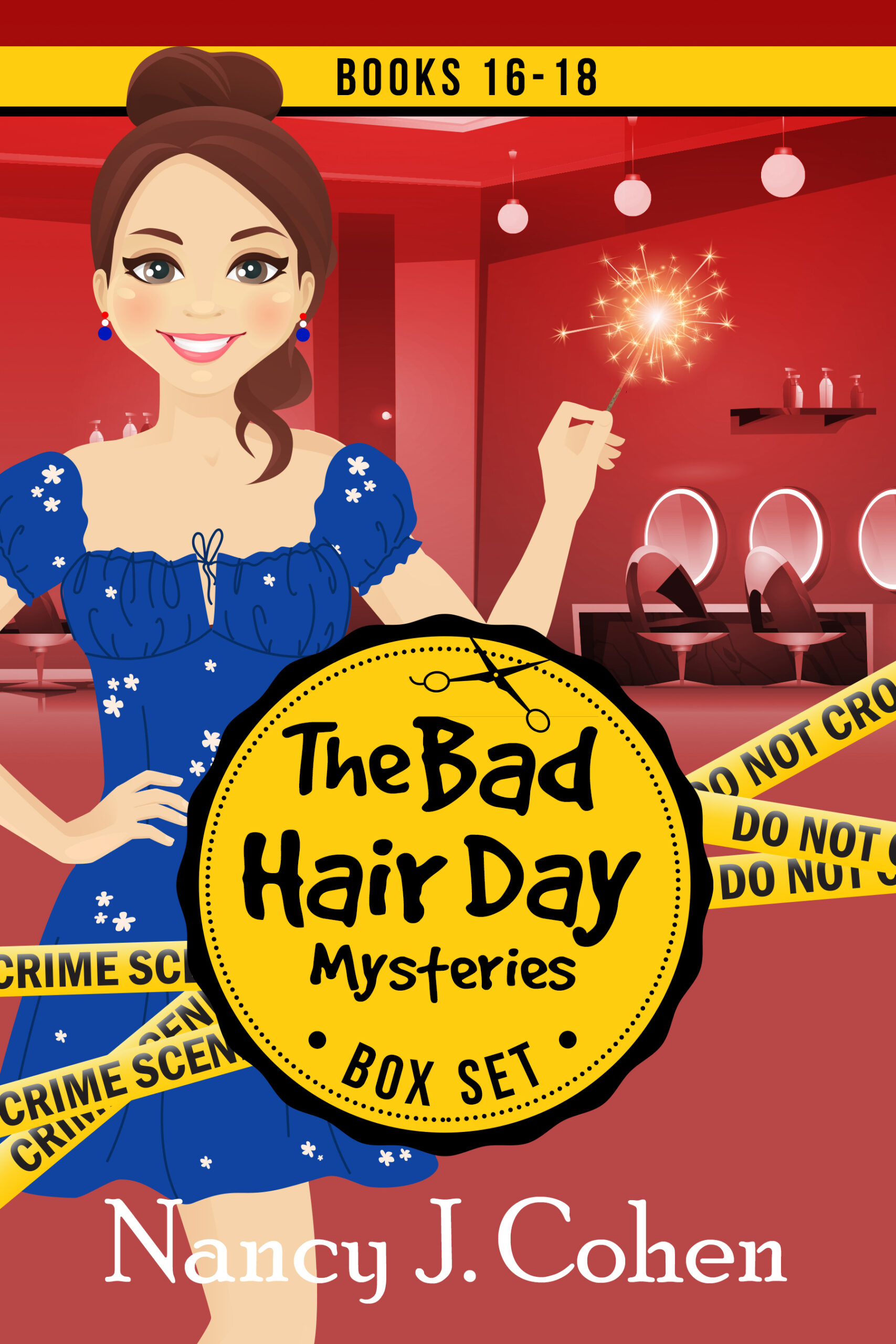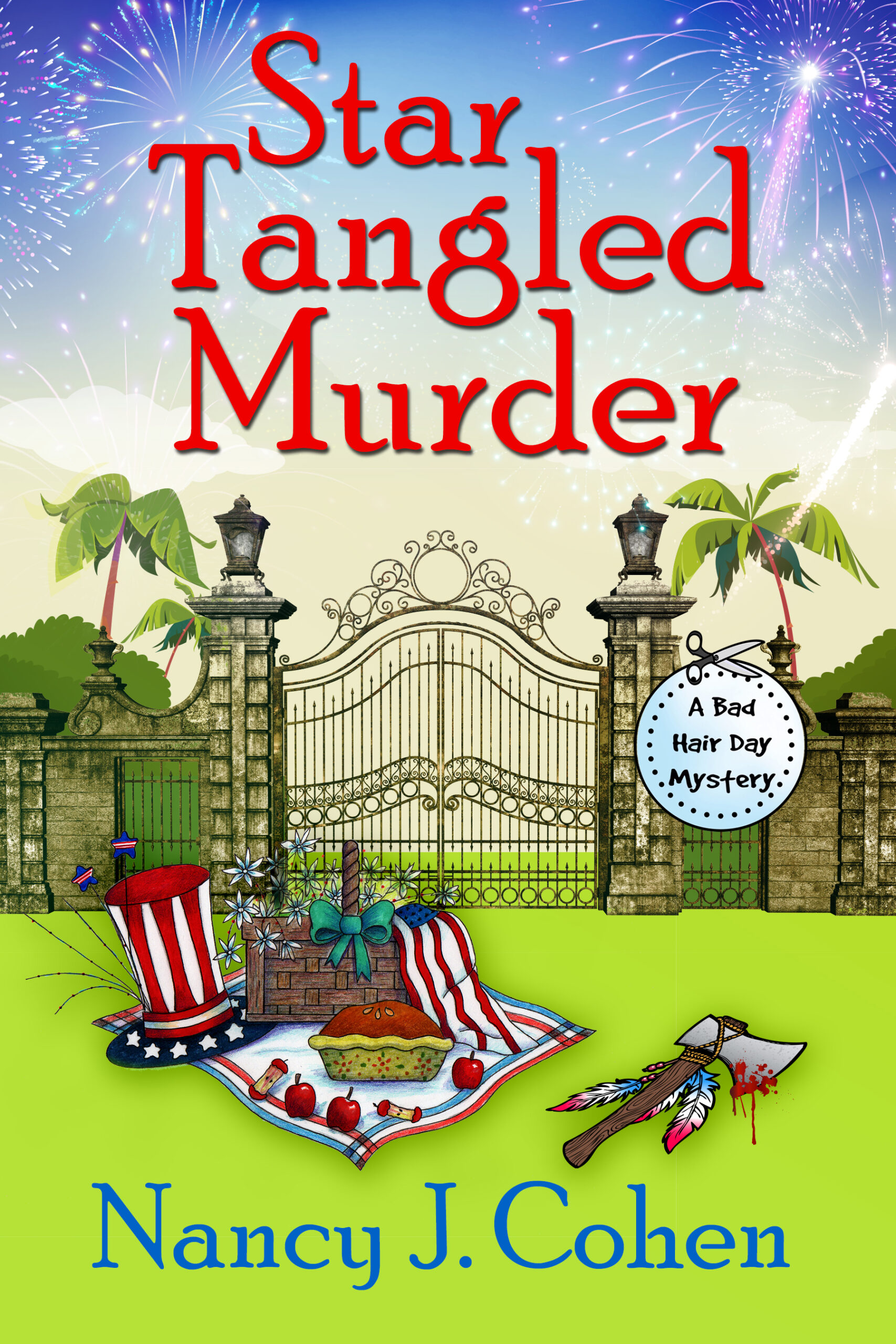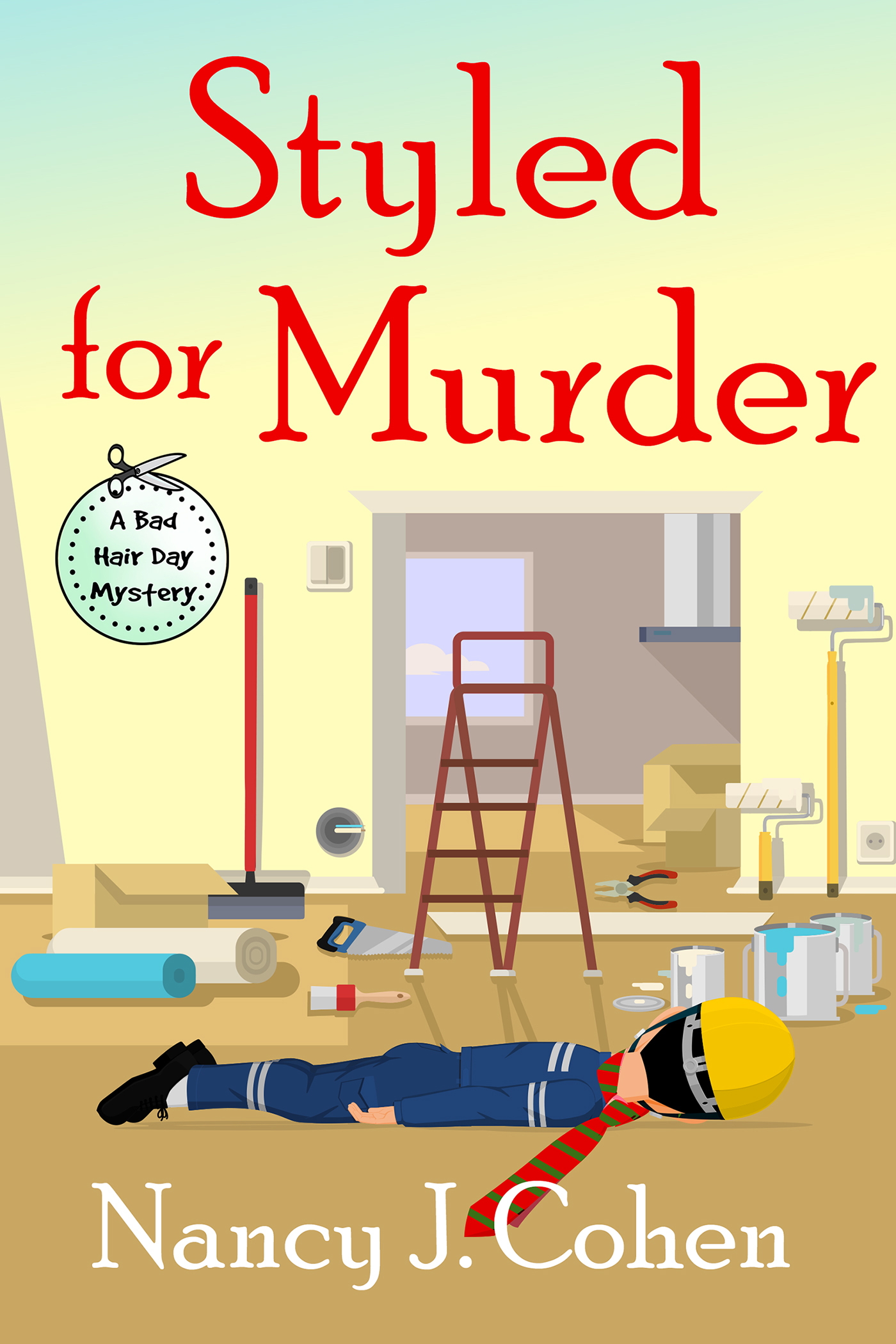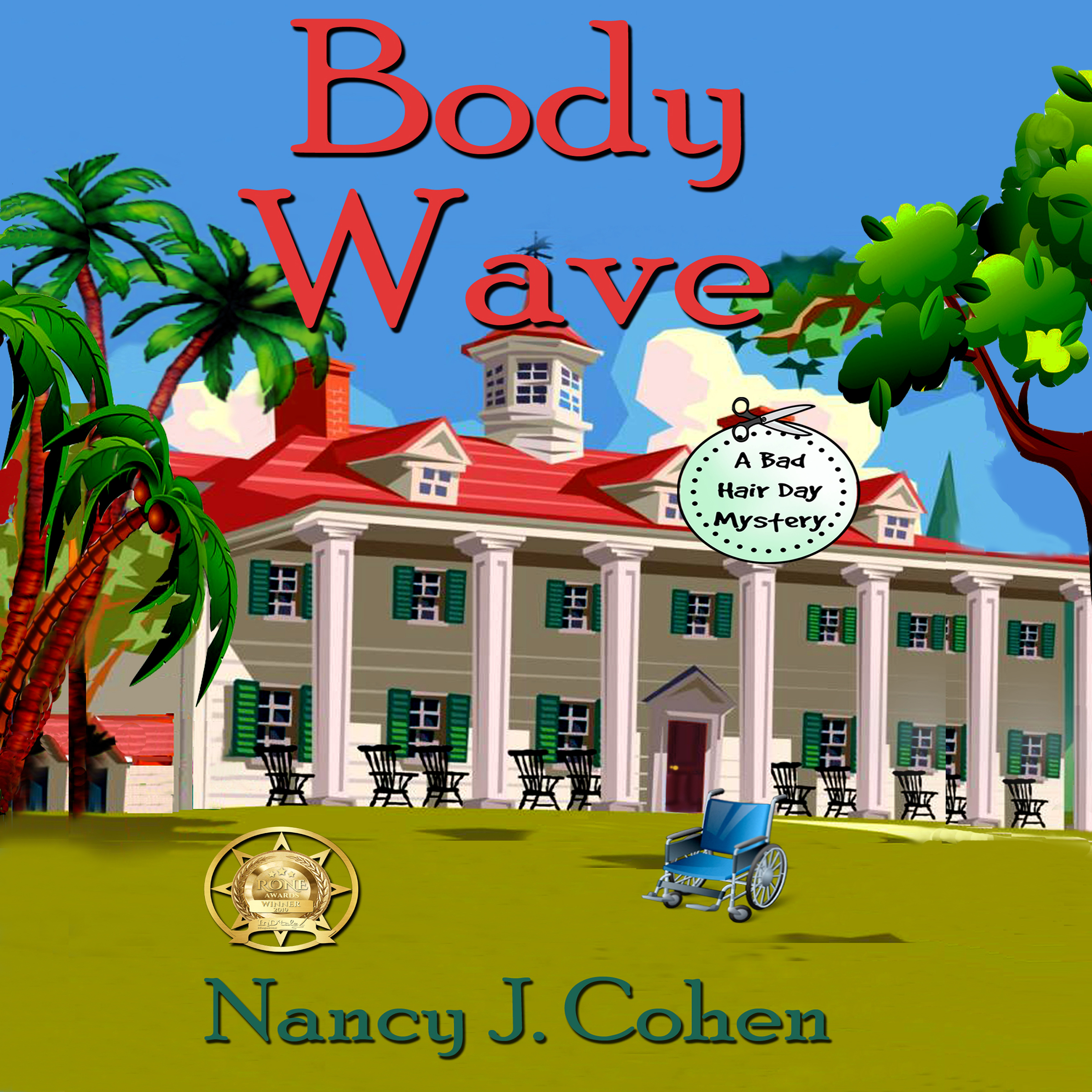Thursday, Oct. 8, 2015 at Bouchercon in Raleigh, NC began with author speed dating. This meant authors hopped from table to table giving a two minute pitch for our books. We went to 15 tables and repeated our spiel at each one. It’s intense but a great way to meet readers and tell them about your work.
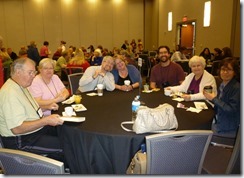
I attended my first panel on the Changing Face of Publishing. Panelists were Juliet Grames, Bob Gussin, Jim Azevedo, Joshua Kendall, and Andrew Gulli as moderator. Here are the highlights based on what I heard. Disclaimer: These notes are based on my interpretation and any errors are mine.
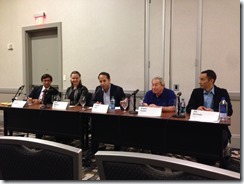
The editor for Soho Crime said they prefer books with a multi-cultural or global angle.
It’s important for brick-and-mortar stores to be flexible regarding where they shelve books.
“We’re not trend followers. You want to write the book I’ve never seen before.” This editor wants to learn something new, so the educational aspect is important to her. She doesn’t acquire a lot of new authors because her publishing house cherishes their loyal writers who’ve been there a while. Authors who bring individuality are desirable.
Self-published authors in the past 3 to 4 years have really upped their game. If you are considering self-publishing, you need to get an editor.
Be on Facebook and Twitter, go to libraries and give talks, get out there…Publishing has exploded and given everyone an opportunity.
Early endorsements help as they are put on advance reading copies where booksellers see them. Social media platforms; personal relationships with booksellers, reviewers, and bloggers are important.
What accounts for the sophomore slump with book two? The author feels more rushed because of deadlines. They have less support as all the friends who came to their events for the debut novel aren’t there this time. The story may not be as new and interesting as the first book.
Strong characters are the key to success. If readers like the characters, they’ll come back for the second book. Your work needs time to build an audience, so don’t rush the next one out there.
Are e-book sales hitting a plateau? Many of the respondents said yes. But the data analyzes money, not necessarily the number of units sold or downloaded.
Young people will read the same book in audio, print, and ebook.
Tweet This: Taking Social Media to the Next Level
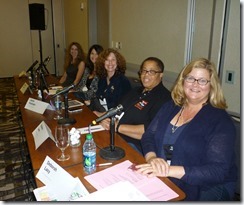
Deborah Lacy moderated this panel with Maddee James, Janet Rudolph, Cara Brookins, and DruAnn Love. These panelists spoke about using Twitter for self-promotion. They advised authors to choose the social media sites we enjoy and do them really well. Know your audience. Young adults are more into Instagram than Facebook. Say more than “buy my book.” Start a discussion. Get people involved. Have fun. Make every tweet count. Use less words so people can re-tweet. Visuals draw people in. Young people like many more hash tags than older adults. Team up with other authors and cross-promote.
After the Opening Ceremonies, a BBQ dinner followed in a tent across the street.

Next: Friday at Bouchercon














